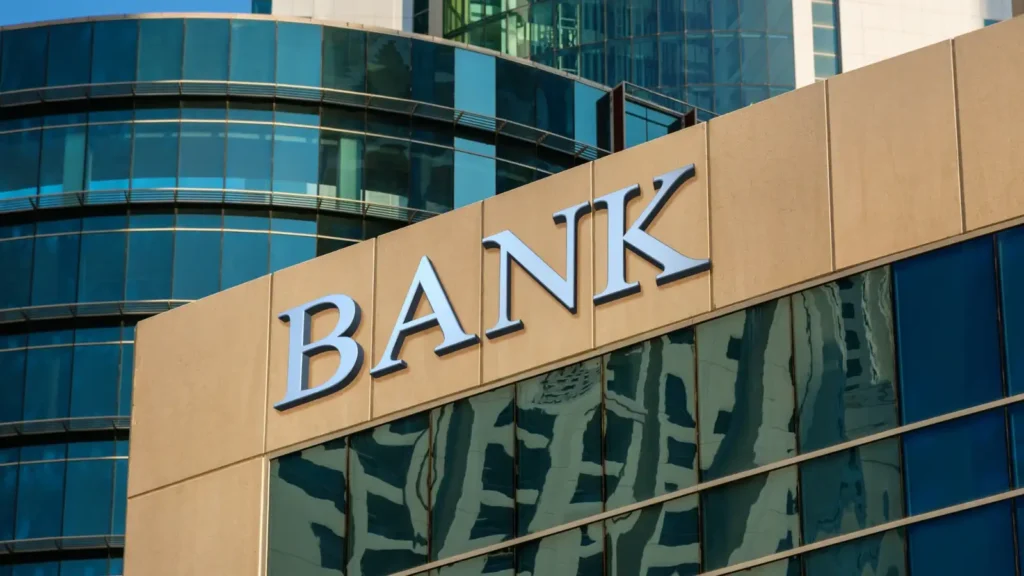PSU Bank Stocks Move Differently After Supreme Court Ruling on JSW Steel: Is This a Good Time to Buy the Dip?

Shares of public sector banks (PSBs) experienced mixed movements on Monday after the Supreme Court ruled in the JSW Steel case. The verdict, which primarily concerns corporate debt and asset ownership, had a ripple effect across various sectors, including banking. While the ruling directly impacts corporate debt resolution, it raised concerns among investors, particularly in public banks that play a crucial role in this process.
Among the key PSU banks, State Bank of India (SBI), Indian Overseas Bank (IOB), UCO Bank, Central Bank of India, and Union Bank of India saw declines in their stock prices by 1% to 2% in intraday trading. This drop led many to ask whether this presents a buying opportunity or signals deeper issues within the sector.
What Caused the Decline in PSU Bank Stocks?
The drop in PSU bank stocks seems linked to the Supreme Court’s decision in the JSW Steel vs Bhushan Power and Steel case. Although the case focuses on asset ownership and debt recovery, it has broader implications for the banking sector, especially regarding how banks handle insolvency and corporate loan recoveries.
Legal uncertainty surrounding asset resolutions often affects public sector banks, which hold large portfolios of non-performing loans. Such legal developments can create ripple effects across the sector, leading to a drop in market confidence and, consequently, stock prices.
Why PSU Banks Are Sensitive to Legal and Regulatory Changes
Public sector banks face challenges with their non-performing assets (NPAs), which are often tied to loans extended to struggling corporations. These banks are deeply involved in the Insolvency and Bankruptcy Code (IBC) process. Their recovery rates depend on the timely resolution of these loans.
Any legal or regulatory development that introduces uncertainty can harm their stock prices. A ruling that delays or complicates debt recovery processes puts these banks in a precarious position. This explains why many PSU bank stocks fell on Monday following the Supreme Court’s verdict.
Analysts Stay Optimistic Despite Short-Term Setback
Despite the short-term setback, many analysts remain confident about the long-term prospects for PSU banks. They note that these banks have undergone significant improvements in terms of asset quality and financial performance in recent years.
“Public sector banks have enhanced their operations significantly,” says a senior analyst. “This short-term dip in stock prices reflects market volatility rather than a fundamental weakness in the sector.”
Several PSU banks, including SBI, UCO Bank, and IOB, reported positive earnings in recent quarters, showing stronger profit margins, reduced NPAs, and improved capital positions. These results suggest that the banks are well-positioned to weather the storm created by legal and market volatility.
Should You Consider Buying the Dip?
For investors wondering whether this market correction is an opportunity to buy, here are several key points to consider:
1. Valuation Prospects
Public sector banks are trading at attractive price-to-book ratios compared to their private-sector counterparts. This could signal value for investors, particularly if the broader economy continues to recover.
2. Government Backing
The Indian government provides consistent support to PSU banks, whether through capital infusions or policy reforms. This support creates a cushion that makes PSU banks less vulnerable than their private-sector peers in times of economic uncertainty.
3. Economic Revival
As the Indian economy shows signs of recovery, demand for credit should rise. PSU banks, with their extensive branch networks and government-linked programs, stand to benefit the most from this resurgence in credit growth.
4. Improved Asset Quality
Many PSU banks have focused on improving their asset quality, resulting in a reduction in bad loans and stronger loan-loss provisions. These improvements better position them to handle challenges, including those arising from legal and regulatory changes.
Consider the Risks Before Jumping In
While the dip in PSU bank stocks may appear to be an attractive entry point, investors should carefully weigh the risks involved:
- Legal and Regulatory Risks: Legal outcomes that delay or complicate loan recovery could further harm the sector.
- Technological Gaps: PSU banks still lag behind private banks in adopting digital banking technology, which could limit their growth potential in an increasingly tech-driven market.
- Global Economic Uncertainty: External factors, like rising global interest rates or recessionary trends in major economies, could dampen credit demand and hinder growth for public banks.
Final Thoughts: Is It Time to Buy?
While the recent decline in PSU bank stocks ties to the Supreme Court’s verdict, investors should look at the broader picture. The sector has seen substantial improvements in asset quality, profitability, and capital adequacy over the past few years. Although short-term volatility may continue, long-term investors could find value in buying during market corrections.
For those considering an investment in PSU banks, it’s important to assess both the opportunities and risks. The sector remains on a recovery path, but legal and regulatory developments, as well as global economic factors, could present challenges.
Disclaimer: This article is for informational purposes only and should not be considered investment advice. Please consult with a financial advisor before making any decisions.






